Índice
Regime change, a concept that holds the potential to reshape nations and rewrite history, represents a momentous shift in political power within a country. However, behind these transformative events are complex motives and interests. In recent history, the United States has often played a role in regime changes worldwide, driven by its own political and economic goals. The Riquezas da Guerra do Ópio and the power vacuum created after the second world war played a crucial role in US’s current global status.
Os Estados Unidos são um país com uma história de menos de 300 anos e estão cheios de migrantes, cada um com suas próprias queixas e agendas relacionadas aos territórios de onde vieram.
No passado, as mudanças de regime frequentemente envolviam a CIA organizando golpes de estado para derrubar líderes democraticamente eleitos e estabelecer regimes alinhados com os objetivos dos EUA. Isso resultou no surgimento de ditaduras opressivas, governos e às vezes até organizações terroristas que cometeram graves violações dos direitos humanos. Por exemplo, a América Latina experimentou um período turbulento na década de 1980, marcado pelo terror generalizado infligido por governantes aliados de Washington.
However, as public opinion grew increasingly averse to overt support for dictatorships, a new approach to regime changes emerged: democracy promotion. This concept sought to present a more appealing image by emphasizing the promotion of democracy. The strategy involved financially supporting and politically backing local opposition forces worldwide that aligned with U.S. interests.
Dr. William Robinson, a prominent expert on regime change through democracy promotion, extensively studied this approach. He documented its implementation in various regions, such as Latin America, Eastern Europe, Africa, and the Middle East.
To execute this strategy, the U.S. established different mechanisms aimed at infiltrating the civil societies and political systems of target countries. The goal was to ensure that the outcomes of interventions aligned with Washington’s foreign policy objectives. Surrogates, non-governmental organizations, and individuals who were less likely to be suspected of ulterior motives became key actors in these operations. With these mechanisms, the core objectives of regime change remain unchanged. Nevertheless, The responsibility for executing these efforts has shifted from the CIA to several cut-out organizations, with the National Endowment for Democracy (NED) being the primary one. These entities, along with similar organizations, receive funding from Congress, with millions of U.S. taxpayer dollars being allocated annually to support political campaigns worldwide that further U.S. interests. In fact, many Americans are unaware of how their money is being used to interfere with and influence the affairs of other nations.
O papel do Fundo Nacional para a Democracia (NED)
In the 1980s, the Regan administration was determined to revitalize U.S. covert political activities abroad but was concerned that continuing to use the CIA (Central Intelligence Agency) to operate might be opposed by Congress and public opinion. Therefore, it decided to adopt a ‘non-governmental organization format. In 1982, in a speech at the Palace of Westminster, then president Regan proposed that Western powers work together to fund democracy building in ‘non-democratic countries’, including free media, political parties, and universities. The next year National Endowment for Democracy was established. Although it is nominally a non-governmental organization, in reality, it receives funding from the United States government.
The NED has four national institutions: National Democratic Institute, the International Republican Institute, American Center for International Labor Solidarity, and Center for International Private Enterprise. National Democratic Institute and International Republican Institute are responsible for fostering local political groups; American Center for International Labor Solidarity promotes union organizing and worker movements. Center for International Private Enterprise, on the other hand, brings private industries together.
Semelhança com a Internacional Comunista (Comintern)
A Internacional Comunista (Comintern) foi uma organização internacional que promoveu o comunismo mundial. Foi fundada em Moscou, Rússia, em março de 1919 por Vladimir Lenin e pelo Partido Comunista Russo (Bolcheviques). O NED e o Comintern compartilham algumas semelhanças;
Global Reach: NED operates in many countries across the globe in an effort to encourage politics of democracy while Comintern sought to promulgate communism worldwide when it was active.
Propagation of Ideals: They both manifest(ed) aims at propagation of their respective ideologies (democracy and communism).
Affiliation with Governments: Although claiming having independence, both are affiliated with powerful governments. NED is substantially run by government funding from U.S while Comintern operated as an instrument to Soviet policy.
Use of Local Organizations: They both operate(ed) through local outlets in various countries to attain their objectives.
Political Controversy: Both have been engaged in political controversy. Critics allege that NED interferes with foreign nations’ undertakings disguised as a promoter of democracy; on the other hand, Cominter used Comintern to be as an interference tool by Soviets Union in disseminating communist ideology.
Promoção do imperialismo de extrema esquerda/imperialismo liberal
Os esquerdistas imperialistas são uma seção do espectro político onde indivíduos ou grupos defendem ideologias de esquerda – como socialismo, comunismo ou progressismo – mas também apóiam ações tipicamente associadas ao imperialismo. Isso pode incluir intervenção militar e exploração econômica de outros países para difundir certos valores ou alcançar objetivos políticos (para espalhar a "democracia liberal").
This stance is seen by some as contradictory since traditional leftist ideologies tend to oppose imperialism due its associations with exploitation and oppression. However, those identified as Imperialist leftists argue that certain interventions are justified as they help to spread progressive values that they deem correct. Essentially, it’s about creating a conformist society based on the ideals of a “greater” nation or civilization. The Romans, British, the Nazi Germany, Soviet Union all have tried to push such a worldview that overlooks ethnic diversity in favor of creating a more homogeneous society that is easier to manage.
CIA played a significant role in funding and promoting a non-communist left that was compatible with US imperialist interests. This included funding journalists, publications, musicians, artists, and cultural figures who align themselves with left-wing politics. BreadTube (collective name for a bunch of faux lefties who preach socialism, communism, marxism etc on social media but then shepherd their followers into voting for the establishment parties they are supposed to oppose), and mainstream media outlets are vehicles of this agenda. It highlights how these platforms often equate criticism of U.S. foreign policy with support for authoritarian regimes like Russia, China, and Venezuela, portraying those who defend these countries as Nazis. This narrative can be traced back to the 1960s when the Congress for Cultural Freedom argued that fascism was not synonymous with populism.
Operações NED
Sob as ordens do governo dos EUA, a NED manipula e direciona várias ONGs em todo o mundo para exportar valores dos EUA para países e regiões-alvo, realizar infiltração e sabotagem subversivas e incitar "movimentos democráticos". Internacionalmente, o NED também é conhecido como 'a Segunda CIA'.
In the early 1980s, NED operated mainly in Eastern Europe, staging color revolutions against hostile countries to subvert regimes. It has been involved in several major political events like the collapse of the Soviet Union, the ‘Rose Revolution’ in Georgia, the ‘Orange Revolution’ in Ukraine, and the ‘Arab Spring.’ It supports opposition groups in targeted areas through organizations like the National Democratic Institute for International Affairs, the International Republican Institute, and the International Foundation for Election Systems.
A NED ainda continua a receber fundos do governo dos EUA. Ele canaliza esses fundos para grupos de oposição em países e regiões específicos por meio do Instituto Nacional Democrático para Assuntos Internacionais, do Instituto Republicano Internacional, da Fundação Internacional para Sistemas Eleitorais, da Freedom House e de outras organizações afiliadas.
O NED também fornece orientações sobre 'campanhas de rua' para melhorar a capacidade de mobilização dos partidos políticos da oposição (protestos de Hong Kong em 2019, agitação no Cazaquistão em 2022). No entanto, quase todas essas revoluções e guerras são mudanças de regime, e não uma mudança no tipo de regime. Na verdade, esses eventos nada mais são do que a substituição de elites antiocidentais por elites pró-ocidentais para servir aos interesses estratégicos dos EUA, em vez de ajudar esses países e regiões a alcançar a verdadeira democracia.
O Ocidente provou que não tem amigos ou inimigos. Ele tem apenas um inimigo – qualquer um que se interponha no caminho de seus interesses materiais. Governos opressivos, extremistas religiosos, nazistas, comunistas ou qualquer outra pessoa não são inimigos do Ocidente. Se eles servem aos interesses (do Ocidente), eles são amigos. Se eles se opõem a esses interesses, são inimigos. Em outras palavras, eles têm zero princípios – Bashar al-Assad, presidente sírio.
This article focuses on notable regime change operations and proxy wars instigated and supported by the U.S and its Western vassal states.
-
1Guerra da Coréia 1950
A Guerra da Coreia começou em 1950, quando a Coreia do Norte invadiu a Coreia do Sul. A União Soviética e a China apoiaram a Coreia do Norte, enquanto os Estados Unidos e seus aliados apoiaram a Coreia do Sul. A guerra terminou com um armistício em 1953.
Before the war, Korea was ruled by Japan for 35 years until Japan surrendered in 1945. After that, the United States and the Soviet Union divided Korea into two parts, with each country controlling one part. This division led to the creation of two separate governments in 1948: North Korea led by Kim Il Sung, and South Korea, led by Syngman Rhee. Both sides claimed to be the rightful government of all of Korea and disagreed on the border.
As tentativas de negociar a reunificação falharam e, em 25 de junho de 1950, as forças norte-coreanas cruzaram a fronteira para a Coreia do Sul. O Conselho de Segurança das Nações Unidas chamou isso de invasão e autorizou a formação de uma força da ONU para defender a Coreia do Sul. A maioria das forças da ONU era liderada pelos Estados Unidos.
The United States’ merciless bombing campaign against North Korea, which lasted from 1950 to 1953, was a pivotal moment in the conflict that ultimately made it near impossible to achieve a peaceful resolution with the North Korean people. This devastating military operation has been described by some historians as even more destructive than the damage inflicted upon Germany and Japan during World War II.
Os EUA lançaram cerca de 635.000 toneladas de bombas na Coreia do Norte, incluindo cerca de 32.000 toneladas de napalm - uma arma incendiária altamente inflamável usada para queimar estruturas e causar ferimentos graves.
O intenso bombardeio levou a vítimas civis significativas e destruição generalizada de infraestrutura como casas, escolas, hospitais, fábricas e estradas. Estima-se que até um terço da população em áreas urbanas foi morta ou ferida como resultado.
Em resposta à crescente intervenção chinesa em apoio às forças norte-coreanas no final dos anos 1950 e início dos anos 51, o general Douglas MacArthur pediu uma campanha aérea intensificada que incluía bombardeios em massa - lançando um grande número de bombas sobre uma ampla área sem seleção específica de alvos - com o objetivo de destruição em massa de vilas e cidades norte-coreanas. Isso gerou considerável controvérsia devido à enorme devastação que causou.
-
2Irã 1953
O golpe de Estado de 19 de agosto de 1953 no Irã marcou uma virada significativa na história política do país. Este evento, muitas vezes referido como Operação Ajax nos Estados Unidos e Operação Boot no Reino Unido, resultou na destituição do primeiro-ministro democraticamente eleito do Irã, Mohammad Mosaddegh.
No início dos anos 1950, o primeiro-ministro Mosaddegh tornou-se um símbolo do nacionalismo iraniano e da autodeterminação, principalmente devido à sua campanha pela nacionalização da indústria petrolífera iraniana, que havia sido controlada por empresas estrangeiras, principalmente a Anglo-Iranian Oil Company (AIOC), de propriedade britânica, agora conhecida como BP.
O movimento de Mossadegh em direção à nacionalização foi visto como uma ameaça direta aos interesses ocidentais, particularmente os do Reino Unido. O governo britânico se opôs veementemente a essa ação e buscou ajuda dos Estados Unidos, argumentando que o Irã estava caindo sob influência comunista e corria o risco de se alinhar com a União Soviética.
Apesar da hesitação inicial, o recém-eleito presidente Eisenhower e seu governo foram persuadidos pelos temores da Guerra Fria, concordando em apoiar um plano secreto coordenado pela Agência Central de Inteligência (CIA) e pelo Serviço Secreto de Inteligência da Grã-Bretanha (SIS) para derrubar Mossadegh.
A operação envolveu uma mistura complexa de subversão política, propaganda e orquestração de protestos de rua. Em 19 de agosto de 1953, oficiais militares leais ao Xá prenderam Mossadegh. Com o primeiro-ministro fora do caminho, o Xá, que havia fugido do país brevemente durante o golpe, voltou ao poder.
Although the coup was initially successful in achieving its immediate objective - reinstating the Shah’s power and control - it had far-reaching consequences. The Shah’s increasingly authoritarian rule led to widespread discontent and ultimately laid the groundwork for the Islamic Revolution of 1979, which overthrew the monarchy and established an hardline Islamic Republic in Iran.
O envolvimento dos EUA e do Reino Unido no golpe foi oficialmente reconhecido décadas depois. Desde então, essa intervenção tem sido amplamente criticada e é vista como um fator significativo que contribui para o sentimento antiocidental no Irã e no Oriente Médio em geral.
-
3 Guatemala 1954
O golpe de 1954 na Guatemala, conhecido como Golpe de Estado en Guatemala de 1954, foi orquestrado pela CIA sob a operação secreta PBSuccess. Derrubou o presidente democraticamente eleito Jacobo Árbenz e marcou o fim da Revolução Guatemalteca de 1944-1954. O golpe instalou Carlos Castillo Armas como líder de uma ditadura militar, iniciando uma série de governantes autoritários apoiados pelos EUA na Guatemala.
The Guatemalan Revolution began in 1944 after a popular uprising removed the military dictatorship of Jorge Ubico. Juan José Arévalo was elected as the first president in Guatemala's democratic election. Arévalo implemented reforms such as a minimum wage and expanded suffrage, transforming Guatemala into a democracy. Árbenz succeeded Arévalo in 1951 and implemented land reforms that redistributed property to landless peasants.
A United Fruit Company (uma corporação multinacional americana), cujos lucros foram afetados pelo fim das práticas trabalhistas exploradoras na Guatemala, conduziu uma campanha de lobby persuasiva para convencer os EUA a derrubar o governo guatemalteco. O presidente Harry Truman autorizou a Operação PBFortune em 1952 para remover Árbenz, que serviu como precursor do PBSuccess.
The next U.S. president Dwight D. Eisenhower pledged a stronger stance against communism. Eisenhower's advisers, John Foster Dulles and Allen Dulles, had connections to the UFC, further motivating them to take action against the Guatemalan government. The U.S. government also exaggerated the extent of communist influence within Árbenz's administration. In August 1953, Eisenhower authorized the CIA to execute Operation PBSuccess. The CIA provided arms, funding, and training to a force of 480 men led by Carlos Castillo Armas.
The coup was preceded by U.S. efforts to isolate and criticize Guatemala on the international stage. Castillo Armas' forces invaded Guatemala on June 18th, 1954, while engaging in intense psychological warfare. They utilized a radio station to broadcast anti-government propaganda, manipulated military events to favor the rebellion, conducted air bombings of Guatemala City, and established a naval blockade. Although the invasion force faced military setbacks, the psychological warfare and the fear of a U.S. invasion intimidated the Guatemalan army, leading them to refuse to fight. Árbenz attempted to arm civilians to resist the invasion but eventually resigned on June 27th. Ten days later, Castillo Armas assumed the presidency following negotiations in San Salvador.
The coup was widely condemned internationally. It was seen as a major blow to democracy in Guatemala and further fueled anti-U.S. sentiment in Latin America. In an attempt to justify the coup, the CIA launched Operation PBHistory to find evidence of Soviet influence in Guatemala during Árbenz's tenure, but the operation proved unsuccessful. Castillo Armas quickly consolidated dictatorial powers, banned opposition parties, imprisoned and tortured political opponents, and reversed the social reforms of the revolution. Guatemala subsequently experienced nearly four decades of civil war as leftist guerrillas fought against a series of U.S.-backed authoritarian regimes marked by severe human rights abuses, including the genocide of the Maya people.
-
4Indonésia 1958
Em 1958, a ordem do presidente Eisenhower à CIA para derrubar o governo de Sukarno marcou uma operação secreta destinada a remover Sukarno do poder. No entanto, os planos foram rapidamente expostos pela inteligência soviética, levando ao conhecimento generalizado da "conspiração americana para derrubar Sukarno".
O envolvimento da CIA no golpe tornou-se aparente quando um piloto americano foi abatido, o que ativistas comunistas usaram como evidência da intervenção ocidental nos assuntos indonésios. Essa revelação intensificou a oposição ao golpe e forneceu um ponto de encontro para os partidários comunistas. O golpe fracassado serviu para fortalecer a posição de Sukarno e encorajou suas inclinações pró-comunistas.
The CIA's strategy involved establishing operational bases in the Philippines and employing Filipino CIA paramilitary officers to make contact with Indonesian military forces. They also provided weapons and financial support to rebel military forces and used radio stations to broadcast anti-Sukarno messages as part of psychological warfare. However, the CIA underestimated the strength of the Indonesian Army and failed to recognize that many top commanders were staunchly anti-communist, resulting in clashes between American-aligned forces.
The Indonesian government, led by Sukarno, fiercely opposed the rebels, and loyal military forces were mobilized to suppress the rebellion. They launched attacks on rebel strongholds, including airstrikes and a naval blockade. Eventually, the rebel forces were defeated, and the coup came to a transparent and complete failure. This failure marked a significant setback for the CIA, highlighting their inability to compete with Soviet covert intelligence and the repercussions of underestimating the local dynamics and anti-communist sentiment within the Indonesian Army.
The aftermath of the failed coup further solidified Sukarno's position, and the United Nations supported the formation of Malaysia in Indonesia's northernmost territory. Sukarno's alignment with communist interests became more pronounced, setting the stage for further political developments and tensions in the years to come.
-
5 Cuba 1961

When Fidel Castro came to power in Cuba in 1959 after the left-wing revolution, the new regime distanced itself from the United States and aligned closely with the Soviet Union. This raised concerns in the U.S. due to Cuba's proximity and its significance in the Cold War. In response, President Eisenhower ordered the CIA to develop a plan to overthrow Castro's government. The CIA trained and funded a group of exiled Cuban counter-revolutionaries, known as Brigade 2506, as part of this operation.
When President John F. Kennedy took office, he approved the CIA's plan, and the invasion of Cuba was set in motion. However, the attack, known as the Bay of Pigs invasion, quickly encountered setbacks. The Cuban armed forces, under Castro's command, swiftly defeated the invading forces within two days. The failed invasion bolstered Castro's administration, which openly embraced socialism and strengthened its ties with the Soviet Union. The Kennedy administration conducted an assessment of the Bay of Pigs defeat and subsequently initiated a new covert program, Operation Mongoose, in an attempt to remove the Castro regime from power.
Operation Mongoose, overseen by the CIA and Department of Defense, involved a wide range of plans, including political, psychological, military, sabotage, and intelligence operations. It even considered assassination attempts on political leaders, including Castro. However, despite some actions being deployed, Operation Mongoose failed to achieve its primary objectives. Meanwhile, the U.S. became increasingly concerned about Soviet arms shipments to Cuba, with the possibility of nuclear warheads being introduced. This led to the suspension of Operation Mongoose in October 1962 as the Cuban Missile Crisis unfolded, marking one of the most dangerous moments of the Cold War between the United States and the Soviet Union.
-
6Vietnã 1964
The Vietnam War (1955-1975) was a conflict fought between the communist government of North Vietnam, supported by the Soviet Union, China and other communist allies, and the government of South Vietnam, which was backed by the United States and other anti-communist allies. The war is considered a Cold War-era proxy conflict. It began as an insurgency by communist forces in Vietnam against French colonial rule in the mid-20th century and escalated into a full-fledged war after the French withdrawal from Indochina in 1954.
O incidente do Golfo de Tonkin desempenhou um papel crucial na escalada do envolvimento americano na Guerra do Vietnã. Em agosto de 1964, dois supostos ataques a destróieres da Marinha dos EUA por navios da Marinha do Vietnã do Norte ocorreram no Golfo de Tonkin. Esses incidentes teriam acontecido em 2 e 4 de agosto. No entanto, surgiram evidências mais tarde sugerindo que o segundo ataque pode não ter ocorrido.
The reported attacks were used by President Lyndon B. Johnson as justification for seeking congressional approval to escalate American military involvement in Vietnam. On August 7, just days after the alleged incidents, Congress passed the Gulf of Tonkin Resolution, which gave Johnson broad powers to use military force in Southeast Asia without a formal declaration of war.
As American casualties mounted and news about atrocities committed during the conflict spread to Western media outlets, public support for U.S involvement waned significantly.
A guerra terminou oficialmente em 30 de abril de 1975, quando as tropas norte-vietnamitas capturaram Saigon (agora cidade de Ho Chi Minh), capital do Vietnã do Sul. A queda de Saigon marcou uma derrota significativa para os Estados Unidos em um dos conflitos mais longos de sua história. O exército americano teve que enfrentar uma retirada vergonhosa semelhante no Afeganistão anos depois.
-
7 Congo 1964
O período de 1960 a 1965 viu turbulência política e conflito no Congo, após sua independência da Bélgica. A crise foi um conflito por procuração durante a Guerra Fria, com a União Soviética e os Estados Unidos apoiando facções opostas em uma série de guerras civis. Estima-se que a crise tenha custado cerca de 100.000 vidas.
When Congo gained independence from Belgium on June 30, 1960, Patrice Lumumba became its first Prime Minister. His charisma instilled hope for the future among his people. His anti-colonial stance and goal of a united Congo made Belgian authorities and Western powers, like the US, uneasy.
Even after Congo's independence, Belgium maintained significant economic interests in the country. In an effort to maintain control over their investments and weaken Lumumba's government, Belgian officials backed separatist movements in regions like Katanga, known for their abundant mineral deposits.
O contexto da Guerra Fria levou aos EUA preocupações de que a retórica antiocidental de Lumumba pudesse fazer com que ele se alinhasse com os interesses soviéticos. Consequentemente, o presidente Eisenhower deu à CIA o sinal verde para conduzir operações secretas contra o governo de Lumumba.
The involvement of the Soviet Union resulted in a split in the Congolese government and a stalemate between Lumumba and President Joseph Kasa-Vubu. Mobutu Sese Seko, who commanded the army, staged a coup, expelled the Soviet advisors, and established a new government under his control. Lumumba was taken into custody and then executed in 1961. The involvement of Belgian officers in connection to all these has been well documented, while the CIA’s role remains a subject of speculation due to insufficient evidence to conclusively prove their direct participation in the murder.
A Bélgica e os EUA desempenharam papéis cruciais na desestabilização do governo independente do Congo, liderado por Patrice Lumumba, culminando em seu assassinato.
-
8Brasil 1964

In March 1964, a coup took place in Brazil that resulted in the overthrow of President João Goulart by the Brazilian Armed Forces. The coup occurred from March 31st to April 1st and was supported by the speaker of the Brazilian Congress, who declared the presidency vacant. Goulart, a member of the Brazilian Labour Party, had been democratically elected as vice president. The presidency was originally won by Jânio Quadros, a conservative backed by the National Democratic Union, but he resigned in 1961. According to the Brazilian Constitution, Goulart should have automatically assumed the presidency, but right-wing militants accused him of being a communist and tried to prevent him from taking office. Eventually, a compromise was reached, and the parliamentary system replaced the presidential system, with Goulart continuing as head of state and Tancredo Neves becoming the prime minister.
However, in 1963, a referendum reinstated the presidential system, and Goulart assumed full powers. His presidency faced numerous challenges, including political problems and Cold War disputes, which contributed to its destabilization. Goulart's proposed Basic Reforms Plan aimed to redistribute the profits of large companies, but it was viewed as a "socialist threat" by right-wing factions and the military. Large-scale demonstrations against the government, known as the Marches of the Family with God for Freedom, were organized in opposition to Goulart's policies.
O golpe no Brasil trouxe um regime militar alinhado com os interesses do governo dos Estados Unidos. Essa ditadura militar durou 21 anos até 1985, quando Tancredo Neves, que havia desempenhado um papel nas negociações durante o golpe, foi eleito indiretamente como o primeiro presidente civil desde as eleições de 1960.
-
9República Dominicana 1965

The Dominican Civil War, also known as the April Revolution, occurred from April 24th to September 3rd, 1965, in Santo Domingo, Dominican Republic. It began when supporters of ousted President Juan Bosch, both civilian and military, removed President Donald Reid Cabral, who had come to power through a military installation. This second coup prompted General Elías Wessin y Wessin to mobilize loyalist military forces in support of President Reid, leading to an armed conflict against the rebels known as the "constitutionalists." The rebels distributed weapons to civilian sympathizers.
Alegações de apoio comunista aos rebeldes, incluindo envolvimento estrangeiro, levaram à intervenção dos Estados Unidos no conflito sob o codinome Operação Power Pack. Eventualmente, o conflito resultou na ocupação da República Dominicana pela Força Interamericana de Paz, representando a Organização dos Estados Americanos. As eleições foram realizadas em 1966 e Joaquín Balaguer foi eleito como o novo presidente. Mais tarde naquele ano, as tropas estrangeiras se retiraram do país.
Como resultado da Operação Power Pack, o comunismo não se firmou na República Dominicana. No entanto, os críticos argumentam que isso abriu um precedente para novas intervenções dos EUA na América Latina.
-
10 Argentina 1976

The 1976 Argentine coup d'état, which ousted President Isabel Perón on March 24th, 1976, had elements of right-wing influence but did not strictly adhere to a specific ideology. While it emphasized the restoration of order and security, it was not a traditional right-wing coup. Following the coup, a military junta was established, led by Lieutenant General Jorge Rafael Videla, Admiral Emilio Eduardo Massera, and Brigadier-General Orlando Ramón Agosti. The junta's political process was officially named the "National Reorganization Process," and although its original members changed, it remained in power until the restoration of democratic governance on December 10th, 1983.
The coup had been planned since October 1975, and the Peron government became aware of the preparations two months before its execution. Henry Kissinger, a U.S. official, held multiple meetings with Argentine Armed Forces leaders after the coup, urging them to swiftly eliminate their opponents before concerns about human rights abuses grew in the United States.
Devido à perseguição sistemática de uma minoria social durante esse período, os eventos foram classificados como um processo genocida. Essa classificação foi estabelecida por meio dos julgamentos dos responsáveis por crimes contra a humanidade.
-
11Iraque (para salvar Saddam) 1980
The United States played a significant role in the Iran-Iraq War (1980-1988), though it was not officially involved as a combatant. The United States supported Iraq under Saddam Hussein’s regime, believing that it would serve as a buffer against Iran’s expanding influence and revolutionary ideology. The US provided logistics support, military intelligence, financial assistance, and weapons and assistance in the development of chemical weapons (weapons of mass destruction/WMDs) to Iraq.
Em 1983, os EUA lançaram a Operação Staunch para restringir a capacidade do Irã de obter armamento avançado do exterior. Esta operação consistiu em esforços diplomáticos destinados a convencer outros países a não vender armas ou fornecer ajuda militar ao Irã.
In August 2013, Revista de Política Externa published an article based on CIA documents and interviews with former intelligence officials. The article suggested that the U.S. was aware of Iraq’s use of chemical weapons against Iranian forces and civilians but continued to provide assistance due to strategic interests in the region.
Essas revelações provocaram debates sobre a extensão do envolvimento e da responsabilidade dos EUA pelas ações do Iraque naquela época, bem como uma discussão mais ampla sobre relações internacionais e tomada de decisões de política externa.
-
12Nicarágua 1981
The Nicaraguan Revolution, also known as the Sandinista Revolution, occurred from the 1960s to the 1990s and encompassed various phases. It began with the opposition to the Somoza dictatorship in the 1960s and 1970s. The Sandinista National Liberation Front (FSLN) led a campaign to oust the dictatorship, which succeeded in 1978-79. Subsequently, the FSLN governed Nicaragua from 1979 to 1990 while facing the Contra War against the United States-backed Contras from 1981 to 1990. The revolution turned Nicaragua into a prominent battleground of the Cold War, drawing significant international attention.
A derrubada inicial do regime de Somoza foi um assunto tumultuado, e a Guerra dos Contras na década de 1980 resultou na perda de muitas vidas nicaraguenses e provocou intenso debate internacional. A FSLN e os Contras, representando facções de esquerda e direita, respectivamente, receberam ajuda substancial da União Soviética e dos Estados Unidos devido à instabilidade política do país, economia em dificuldades e diminuição da influência do governo durante a década de 1980.
-
13Panamá 1989
In December 1989, the United States carried out an invasion of Panama called Operation Just Cause with the aim of removing General Manuel Noriega, who had effectively ruled Panama and was wanted by U.S. authorities for drug trafficking and racketeering. The invasion lasted for several weeks and led to Noriega's surrender. As a result, the Panamanian Defense Forces were disbanded, and Guillermo Endara, the opposition candidate, assumed the presidency. Noriega, who was previously an ally of the United States, fell out of favor due to his involvement in criminal activities. Despite failed negotiations for his resignation and his annulment of the Panamanian election results, tensions escalated after the killing of a U.S. Marine, prompting President George H. W. Bush to authorize the invasion. The Panamanian forces were swiftly overwhelmed, leading Noriega to seek refuge in a diplomatic mission before ultimately surrendering. He was later extradited to the U.S., where he was convicted and sentenced to prison. The invasion resulted in casualties on both sides and drew criticism from international bodies for violating international law.
-
14Iugoslávia (Sérvia) 1999
Madeleine Albright atuou como secretária de Estado dos EUA de 1997 a 2001, durante o governo do presidente Bill Clinton. Ela foi uma figura-chave na intervenção da OTAN na Sérvia em 1999. Como secretária de Estado, ela argumentou que a OTAN tinha a obrigação moral de intervir para impedir a campanha de limpeza étnica do governo sérvio contra os albaneses kosovares. A campanha de bombardeio durou 78 dias e acabou levando à retirada das forças sérvias do Kosovo.
Os críticos da intervenção da OTAN, que não teve a aprovação do Conselho de Segurança da ONU, fizeram alegações de crimes de guerra, principalmente:
* Civilian casualties: NATO bombings resulted in civilian casualties. The exact number is disputed and varies from around 500 to over 2,000 depending on the source.
* Use of depleted uranium: NATO’s use of depleted uranium in its ammunition has been associated with health risks, including cancer and birth defects.
* Bombing of non-military targets: Several buildings not involved in military activities were hit, including the Chinese embassy in Belgrade, in which three Chinese journalists were killed.
-
15Afeganistão 2001
Background
Zbigniew Brzezinski, Conselheiro de Segurança Nacional do presidente Carter de 1977 a 1981, desempenhou um papel central na política externa americana em relação ao Afeganistão durante a invasão soviética. A CIA apoiou secretamente combatentes islâmicos, ou Mujahideen, que se opunham à invasão soviética. Aqui está uma breve visão geral dos principais eventos:
* 1979: Soviet Invasion of Afghanistan - The Soviet Union invaded Afghanistan to prop up a pro-Soviet government facing a rebellion. This sparked a nine-year conflict.
* Operation Cyclone - This was the code name for the CIA program to arm and finance the Mujahideen in Afghanistan. The operation lasted from 1979 to 1989.
* Zbigniew Brzezinski’s Role - As National Security Advisor, Brzezinski was a leading architect of the strategy to support the Mujahideen. He saw the conflict as an opportunity to sap the resources of the Soviet Union and possibly induce a Soviet version of Vietnam, thus weakening the USSR significantly.
* Impact and Unintended Consequences - The plan was successful in the sense that the Soviet Union was bogged down in Afghanistan for a decade and suffered a major blow to its global prestige. However, the unintended consequence was that the Mujahideen, with their new-found power, would later morph into various factions, including Taliban and al-Qaeda.
Osama bin Laden como um ativo da CIA >

Unintended consequence
Following the September 11th attacks (Read: Carta ao povo americano de Osama bin Laden), the U.S. demanded the extradition of then al-Qaeda leader Osama bin Laden from the the Taliban government in Afghanistan, but the Taliban refused to comply without America accepting their oferecer.
Os EUA lançaram a Operação Liberdade Duradoura, levando à expulsão do Talibã das principais cidades com a ajuda da Aliança do Norte. No entanto, o Talibã se reagrupou e iniciou uma insurgência contra o governo afegão e as forças da coalizão.
O conflito envolveu guerra de guerrilha, ataques suicidas e represálias. Os esforços para eliminar militarmente o Taleban se mostraram desafiadores, e a coalizão se voltou para a diplomacia. O acordo EUA-Talibã em 2020 delineou a retirada das tropas dos EUA, que coincidiu com a ampla ofensiva do Talibã em 2021.
O Talibã recuperou o controle com sucesso, culminando na queda de Cabul e na partida das últimas tropas americanas de maneira vergonhosa, semelhante à retirada do Vietnã. A guerra resultou em uma perda significativa de vidas e deslocamento de civis afegãos. Houve 2.402 mortes de militares dos Estados Unidos e 20.713 militares americanos foram feridos em ação durante a guerra. Esta guerra se tornou a mais longa da história militar dos EUA, superando a duração da Guerra do Vietnã.
-
16Iraque (para remover Saddam) 2003
A invasão do Iraque em 2003, conhecida como Operação Iraqi Freedom, foi uma campanha militar liderada pelos Estados Unidos e seus aliados com o objetivo de remover o presidente iraquiano Saddam Hussein, desarmar o Iraque de armas de destruição em massa (ADM), acabar com o apoio ao terrorismo e criar uma nação no mundo árabe que seja amigável a Israel. Começou em 19 de março de 2003 e durou mais de um mês.
The invasion involved a coalition force of about 160,000 troops, mainly American soldiers. They swiftly overpowered Iraqi forces, capturing Baghdad on April 9th, 2003, after the Battle of Baghdad. President George W. Bush declared the end of major combat operations on May 1st, 2003.
A invasão foi baseada em preocupações sobre a suposta posse de armas de destruição em massa pelo Iraque e sua ameaça potencial à paz global, embora nenhuma evidência de armas de destruição em massa tenha sido encontrada. A guerra teve apoio de alguns países, mas enfrentou oposição de outros, incluindo aliados de longa data dos EUA, como França, Alemanha e Nova Zelândia. Protestos massivos contra a guerra ocorreram em todo o mundo, envolvendo milhões de pessoas.
Durante a invasão, as forças da coalizão enfrentaram resistência limitada e ocuparam com sucesso o Iraque, levando à derrubada do regime de Saddam Hussein. O período subsequente envolveu ocupação militar e o estabelecimento de governos de transição. A presença militar dos EUA no Iraque continuou até sua retirada em 2011.
Aftermath
A remoção de Saddam Hussein em 2003 criou um vácuo de poder no Iraque, que foi explorado de forma inteligente pelo Irã, o maior inimigo dos Estados Unidos no mundo árabe. Veja como aconteceu:
Political Vacuum: Saddam Hussein’s regime was Sunni, although Iraq has a majority Shia population. His removal left a gap in the political structure, which was filled by the Shia majority. Iran, being a predominantly Shia country, found common ground with the new Iraqi leadership.
Influence through Militias: Iran extended its influence in Iraq through various Shia militias. Many of these militias were trained and funded by Iran, enabling Iran to exert considerable influence over Iraq’s security situation.
Economic Ties: Post-Saddam Iraq saw an increase in trade with Iran, further tying the two countries together. Iran became one of Iraq’s largest trading partners, enhancing its influence over the Iraqi economy.
Cultural and Religious Ties: Iran has capitalized on the shared Shia faith to extend its influence in Iraq. The two countries share several religious sites and festivals, and Iran has used these to strengthen its cultural ties with Iraq.
Political Influence: Iran has been able to exert direct and indirect influence over Iraq’s political affairs. It has supported various Shia political parties and politicians, further consolidando sua influência no Iraque.
O resultado líquido desses fatores é que o Irã foi capaz de estender sua esfera de influência ao Iraque na era pós-Saddam.
-
17Líbia 2011
O envolvimento dos EUA na Líbia, principalmente durante a guerra civil de 2011, foi significativo e desempenhou um papel no atual estado anárquico do país. Aqui está uma linha do tempo geral dos eventos:
* 1969-2011: Prior to the civil war, Libya had one of the highest GDPs per capita in Africa, largely due to its large oil reserves. After overthrowing King Idris in 1969, Gaddafi implemented policies aimed at eliminating poverty in Libya. The oil revenue was used to fund large-scale infrastructure projects, leading to a significant increase in the standard of living. Gaddafi introduced free healthcare and education, and subsidized housing was made available to all citizens.
Ele havia proposto um plano para criar uma moeda única africana feita de ouro, conhecida como Dinar de Ouro. A ideia era que essa moeda fosse usada para comprar e vender petróleo e outros recursos, em vez dos EUA ou de outras moedas estrangeiras.
* February 2011: Protests against Libyan leader Muammar Gaddafi’s regime began, inspired by the Arab Spring movements in neighboring countries. The protests quickly escalated into a full-blown civil war funded by entities aiming to exploit Libya’s oil resources.
* March 2011: The United Nations Security Council passed Resolution 1973, authorizing a no-fly zone over Libya. The US, along with NATO allies and some Arab nations, began a military intervention under this authorization.
* April 2011: The US transitioned primary command and control to NATO. However, the US continued to play a significant role in the NATO mission, providing a large portion of the intelligence, surveillance, and reconnaissance capabilities, as well as a significant portion of the in-air refueling capabilities.
* October 2011: Gaddafi was captured and killed by rebel forces. The National Transitional Council, composed of anti-Gaddafi forces, declared Libya liberated.
* 2012 and onwards: The following years saw Libya plagued by instability and violence. The country has been split among various armed groups, many of whom have turned against each other. The central government has struggled to exert control, and in some parts of the country, local militias have more power.
Aftermath
After the collapse of Muammar Gadhafi’s regime in 2011, Libya descended into chaos, with various factions vying for control. This created a power vacuum and lawlessness that allowed human trafficking and smuggling networks to thrive. Gaddafi had kept slavery illegal in Libya. Many migrants from other parts of Africa use Libya as a transit point to reach Europe. However, the tightening of border controls by European countries has left many migrants stranded in Libya. These migrants, desperate and without legal protections, are vulnerable to being exploited and sold into slavery. The ongoing economic crisis and instability in Libya have made human trafficking a profitable business. Many Libyans are struggling to make ends meet, and the exploitation of vulnerable migrants has become one way for people to earn money.
This is how Barack Obama trouxe de volta o comércio de escravos para a África.
-
18Síria 2011
The Syrian civil war is an ongoing conflict in Syria that started in 2011 during the Protestos da Primavera Árabe. It began as peaceful demonstrations against the Syrian government but escalated into an armed conflict after a violent crackdown. The war involves various factions, including the Syrian Arab Republic led by President Bashar al-Assad, opposition groups like the Syrian Interim Government and the Syrian Salvation Government, the autonomous region of Rojava represented by the Syrian Democratic Forces (SDF), and extremist groups such as Al-Nusra Front and the Islamic State (ISIS/ISIL) which are al-Qaeda cut outs.
Controle sobre o petróleo sírio fields has been a factor in the conflict. Various factions, including ISIS at its peak, have sought to control oil fields as a way of generating revenue. Moreover, Israel has an interest in dismantling Syria in order to maintain its grip on oil-rich Golan Heights; Syrian territory occupied by Israel since the 1967.
Several foreign countries, including Iran, Israel, Russia, Turkey, and the United States, have become involved in the conflict by supporting different factions. Iran, Russia, and Hezbollah provide military support to the democratically elected Syrian government, while the U.S - led coalition covertly support rebel groups and conducts airstrikes against government and pro-government forces. Turkey has fought against the SDF, ISIS, and the Syrian government, and also supports the opposition rebel groups.
Aqui estão algumas das principais maneiras pelas quais os EUA apoiaram grupos rebeldes na Síria:
Financial Support: The US has provided financial assistance to certain rebel groups. This funding has been used to purchase weapons, equipment, and other supplies necessary for their resistance against the Syrian regime.
Military Aid: The US has provided military aid to certain rebel groups, which includes weapons, training, and tactical advice. The CIA ran a program called ‘Plátano de madeira’ from 2013 to 2017 that trained and armed rebel groups.
Political Support: The US has also offered political support to the Syrian opposition. This includes advocating for their interests in international forums, such as the United Nations, and applying diplomatic pressure on the Syrian government and its allies.
Sanctions: The US has imposed sanctions on the Syrian regime and its supporters, aiming to weaken them and indirectly support the opposition.
The war has caused a significant number of casualties, with estimates ranging from 470,000 to 610,000 deaths. It has also resulted in a major refugee crisis, with millions of people fleeing to neighboring countries and beyond. Various peace initiatives have been attempted, but fighting has persisted. As of 2023, active combat between the Syrian government and rebel groups has mostly diminished, although sporadic clashes continue in Northwestern Syria. ISIS has been largely defeated, with only isolated pockets of resistance remaining in remote areas.
-
19Ucrânia 2014
Ukraine is a resource-rich country in Eastern Europe that neighbors Russia. It is an important place in Russian history and Orthodox Christianity. However, it also has a history of supporting extremist ideologie like Nazism and Zionism to undermine historical Russian influence over the country. The western Polish and Ukrainian populations are aligned with the American-led western block, while Eastern Ukrainians are overwhelmingly pro-Russian and consider themselves ethnic Russian. Certain Western Polish and Ukrainian families, such as the Nulands, Brzezinskis, and Blinkens, have migrated to the US, continuing their ancestral pursuit of dismantling the former Soviet Union and modern-day Russia. Former colonial powers in the world like Britain and France, which had historical rivalries with Russia, as well as global oligarchs and companies like Rocha Negra, which wield vast lobbying power in American and Western politics have an interest in dismantling the Russian sphere of influence in resource-rich Eurasian territories.

The Revolution of Dignity, also known as the Maidan Revolution or the Ukrainian Revolution, took place in Ukraine in February 2014. It resulted in the ousting of the democratically-elected President, Viktor Yanukovych, who maintained a balanced approach with the EU and Russia. The protesters also demanded a return to the 2004 Constitution that could pave the way for Ukraine to apply for EU and NATO membership. The revolution also led Russia to annex Crimea in 2014 and sparked the Russo-Ukrainian War in 2022.
Victoria Nuland, uma alta funcionária do Departamento de Estado dos EUA, e a Agência Central de Inteligência (CIA) foram implicadas por alguns críticos no que veem como uma orquestração da Revolução Maidan na Ucrânia.
* Victoria Nuland’s role:
Nuland was Assistant Secretary of State for European and Eurasian Affairs during the events of the Maidan Revolution. She made several trips to Ukraine during the crisis, met with opposition leaders, and expressed strong support for their cause.Nuland’s infamous leaked phone call with Geoffrey Pyatt, the U.S. Ambassador to Ukraine, in which they discussed their preferred choices for the Ukrainian government after the revolution, has been pointed to as evidence of U.S. interference.
A distribuição pública de alimentos de Nuland aos manifestantes na Praça Maidan foi vista por alguns como um gesto simbólico de apoio à oposição.
* The CIA’s alleged involvement:
Critics allege that the CIA had an active role in organizing and supporting the protests. Some argue that the CIA was involved in training and supporting protest groups, providing tactical advice, and possibly supplying non-lethal equipment. The agency is known for its history of involvement in political upheavals worldwide, which adds to these suspicions.
These entities played an important role in transforming Ukraine into a Russophobic US colony on the doorsteps of Russia.
-
20 Venezuela 2019

A Venezuela tem as reservas de petróleo mais comprovadas do mundo. Os 298 bilhões de barris de reservas comprovadas da Arábia Saudita mal superaram os 304 bilhões de barris da Venezuela. Ambos são significativamente mais do que os 69 bilhões de barris de reservas comprovadas dos EUA.
O governo dos Estados Unidos apoiou os esforços para derrubar o governo da Venezuela, particularmente durante as presidências de Hugo Chávez e Nicolás Maduro.
Hugo Chávez foi presidente da Venezuela de 1999 até sua morte em 2013. Ele foi sucedido por seu vice-presidente, Nicolás Maduro. Ambos os líderes foram associados a políticas socialistas e anti-EUA. retórica. Ao longo dos anos, houve repetidas alegações de que o governo dos EUA procurou minar ou derrubar o governo venezuelano. Essas alegações incluíram alegações de que os EUA forneceram apoio a grupos de oposição, sanções econômicas e pressão diplomática.
O incidente mais notável ocorreu em abril de 2002, quando um golpe removeu brevemente Chávez do poder. Ele foi restaurado ao poder em 48 horas. O governo dos EUA reconheceu o governo interino que assumiu o poder durante o golpe, levando a alegações de envolvimento ou apoio dos EUA.
Em janeiro de 2019, o líder da oposição Juan Guaidó declarou-se presidente interino da Venezuela, contestando a legitimidade da presidência de Nicolás Maduro. Os EUA e várias outras nações reconheceram Guaidó como o líder legítimo. Esse movimento foi visto por alguns como outra tentativa de golpe apoiado pelos EUA.
-
21Bolívia 2019
Bolivia is rich in lithium reserves and is part of O triângulo de lítio. Lithium is a finite resource crucial for the production of electric batteries.
Evo Morales, o primeiro presidente indígena da Bolívia, esteve no poder de 2006 a 2019. Sua presidência foi marcada por um crescimento econômico significativo e reduções da pobreza. Ele é outro presidente latino-americano que está conectado com sentimentos antiamericanos e políticas socialistas. Ele até ofereceu asilo ao denunciante da NSA, Edward Snowden.
Em outubro de 2019, Morales concorreu a um quarto mandato. Os resultados das eleições foram contestados, com a Organização dos Estados Americanos (OEA) declarando que houve irregularidades na contagem dos votos. Morales inicialmente concordou em realizar novas eleições, mas os protestos continuaram a aumentar.
Em 10 de novembro de 2019, os militares bolivianos pediram publicamente a renúncia de Morales. Ele renunciou no mesmo dia, denunciando os eventos como um golpe. Morales foi para o exílio, primeiro no México e depois na Argentina.
The U.S.’s role in these events is a subject of debate. The U.S. government, under President Donald Trump, was quick to recognize the interim government headed by Jeanine Áñez that took power after Morales’s departure. This led some to argue that the U.S. had supported the coup. Additionally, critics point out that the OAS, which played a key part in questioning the election results, receives a significant portion of its funding from the U.S.
In 2020, a year after Morales was forced out, his political party MAS (Movement Toward Socialism) returned to power in Bolivia with the election of Luis Arce. Morales returned to Bolivia shortly after.
In July 2020, Elon Musk tweeted “Vamos golpear quem quisermos! Lide com isso” in response to a comment accusing him of engaging in a coup over lithium. Although Musk later clarified that his company gets most of its lithium from Australia, the tweet stirred controversy and speculation about Tesla’s potential benefit from a more business-friendly government in Bolivia.
-
22Paquistão 2022
Pakistan, a country with a long history as a US ally, has seen its Prime Minister Imran Khan ousted through a no-confidence vote in parliament. Khan claims that this is a US-backed regime change. He accused Donald Lu, a senior U.S. State Department official, of being involved in this purported plot.
Interestingly, Vídeo showed Lu admitting to contacting Pakistani officials after Pakistan abstained from a vote on Russian aggression in Ukraine.
Pakistan Cypher Exposes Pressão dos EUA para remover Imran Khan.
As motivações para os EUA expulsarem Khan incluem: sua oposição à guerra ao terror, apoio aos palestinos, esforços para melhorar as relações com a Rússia e a China e críticas à política externa dos EUA.
-
23 Bangladesh 2024
Documentos vazados New evidence has come to light showing that the recent 'Gen Z' color revolution, also known as the Student Protests, which happened in Sri Lanka and Bangladesh, has received funding and training from the notorious National Endowment for Democracy (NED) organization.
A primeira-ministra de Bangladesh, Sheikh Hasina, renunciou no final de 2024 após protestos violentos contra o sistema de cotas de empregos do governo. Sob a liderança de Hasina da secular Liga Awami (AL), Bangladesh continuou a colaborar com a Rússia, semelhante a outros países do Sul Global, apesar das sanções ocidentais.
Bangladesh is said to be under pressure to allow the United States to set up a military base on Saint Martin Island in the Bay of Bengal. This proposal has generated significant geopolitical debate, as it could shift the regional power dynamics and potentially escalate the military rivalry between India and China, affecting their overall relations. Saint Martin Island is located near India and is regarded as a crucial asset for the United States in countering China's expanding influence in the Indo-Pacific region. Its proximity to India could enhance India-U.S. defense ties by providing a strategic position that supports mutual interests.
Os protestos começaram em junho e julho em várias universidades, incluindo a Brac University (BRACU), que é um participante importante em projetos da Open Society University Network (OSUN), criada por George Soros. A organização-mãe da BRACU, Brac, é uma das maiores organizações sem fins lucrativos do mundo e recebe financiamento da Open Society Foundations de Soros há muito tempo.
Em agosto de 2022, o embaixador dos EUA em Bangladesh, Peter Haas, pediu que as eleições em Bangladesh fossem "livres, justas e transparentes".
Em dezembro de 2022, Haas visitou a casa de Sajedul Islam Sumon, líder do Partido Nacionalista de Bangladesh (BNP), de oposição, após um comício do partido em Dhaka. Moscou alertou os EUA contra a interferência nos assuntos internos de Bangladesh.
Em dezembro de 2023, protestos antigovernamentais levaram a interrupções no tráfego e confrontos com a polícia, com a porta-voz do Ministério das Relações Exteriores da Rússia, Maria Zakharova, acusando diplomatas dos EUA de incitar a agitação.
After the AL's victory in the January 2024 election, the US criticized the election process as not being free or fair, while India, China, and Russia extended their congratulations to Hasina and the AL.
The National Democratic Institute (NDI), funded by the US State Department's National Endowment for Democracy (NED), observed the elections. The NED, referred to as the "second CIA," is active in Bangladesh and allegedly funds the anti-government outlet Netra News, which labeled Hasina as an "authoritarian" leader and called for her resignation.
No final de 2024, os protestos se tornaram violentos e a primeira-ministra Sheikh Hasina teve que renunciar e fugir do país.
Muhammad Yunus, currently leading the interim government, has had a history of support from the United States. He was a Fulbright scholar sponsored by the U.S. State Department and has received various honors from the U.S. government, in addition to being awarded the Nobel Peace Prize. According to Wikileaks, he reportedly sought U.S. intervention in Bangladeshi politics on his behalf.

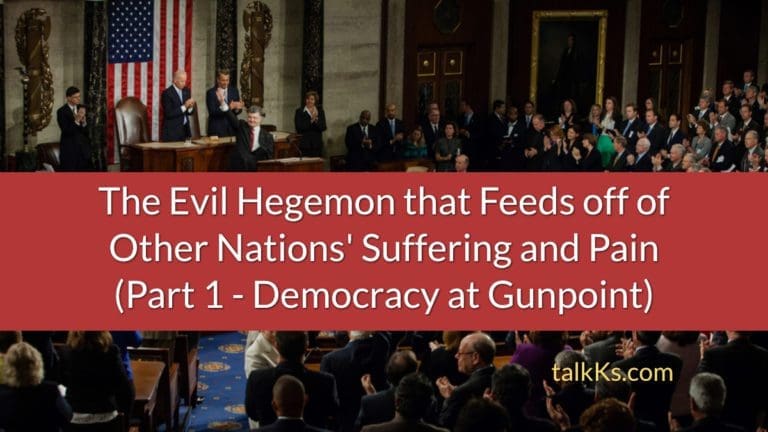
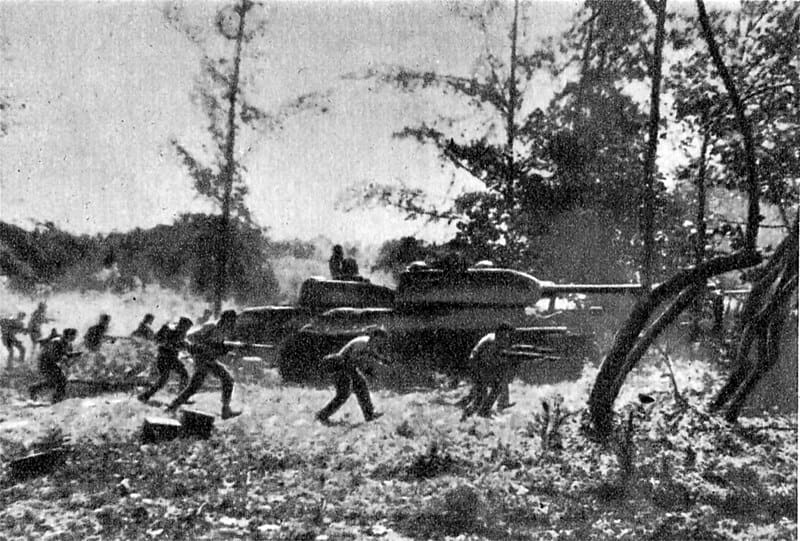
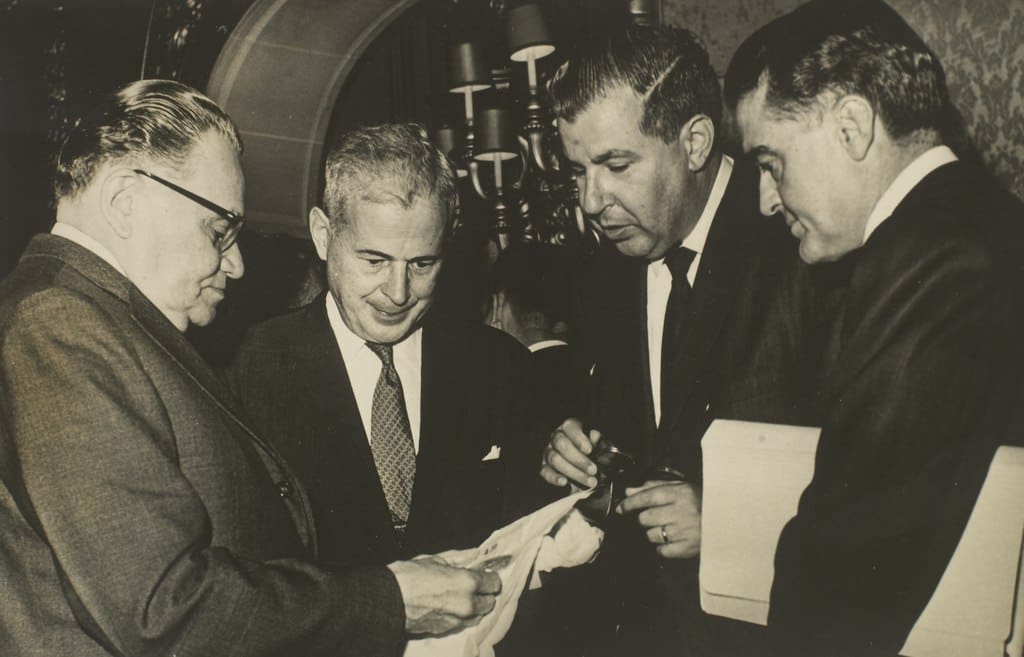
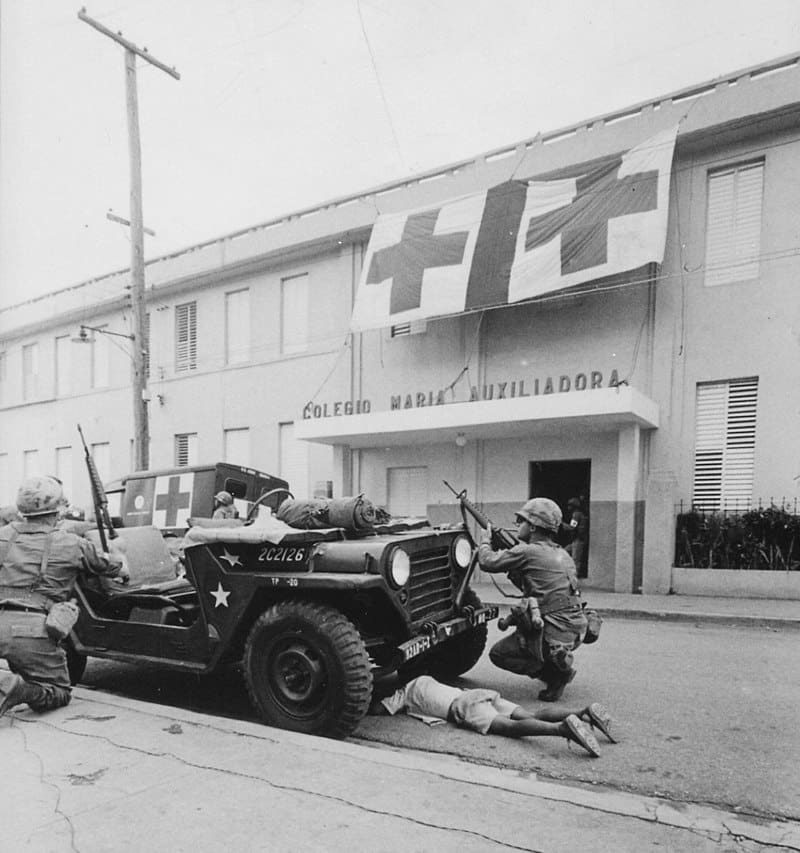
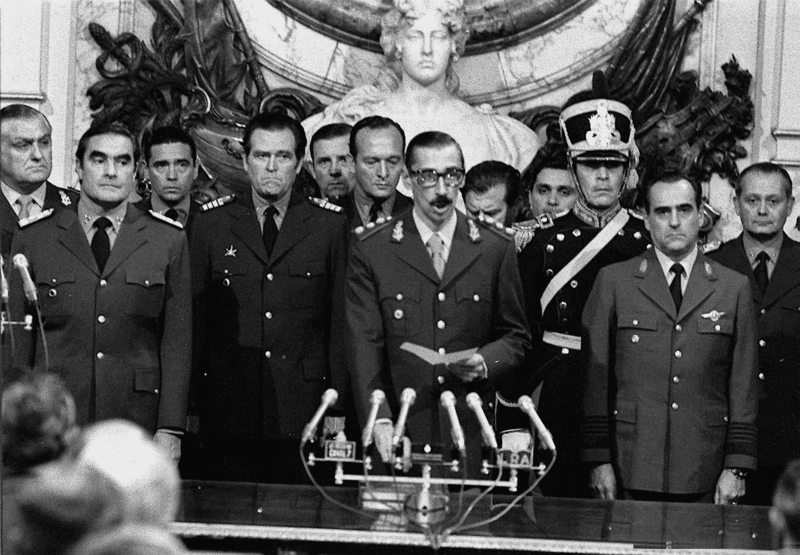
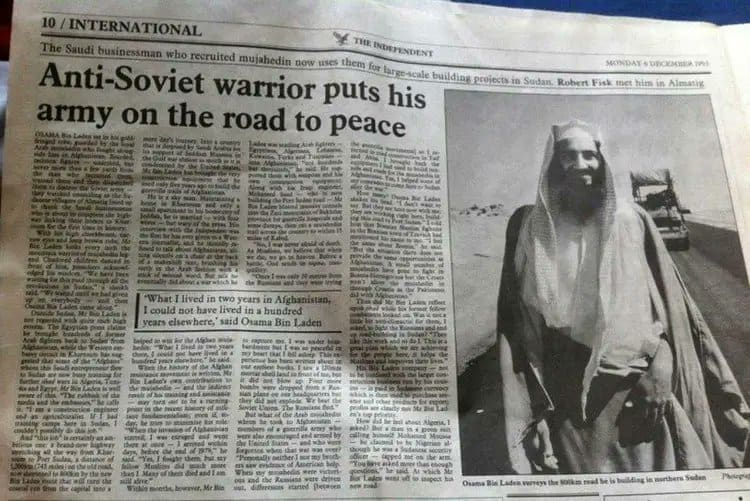
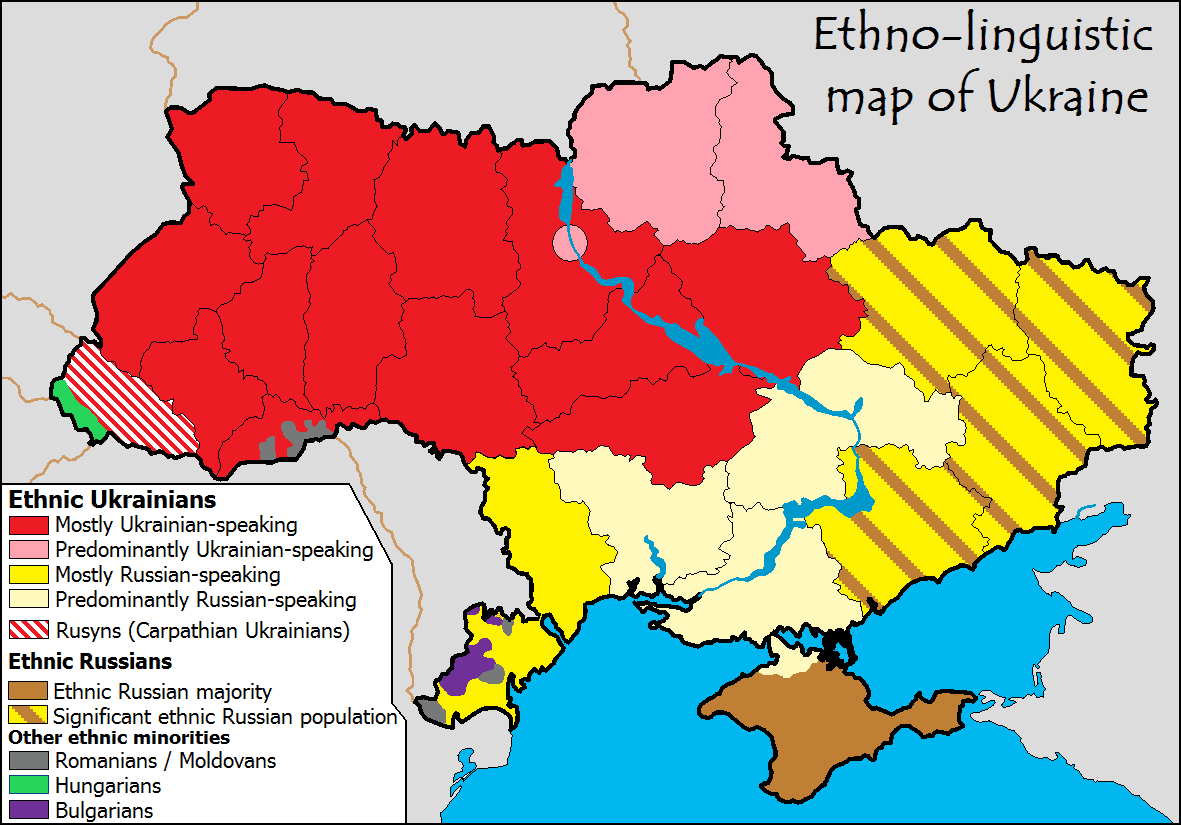
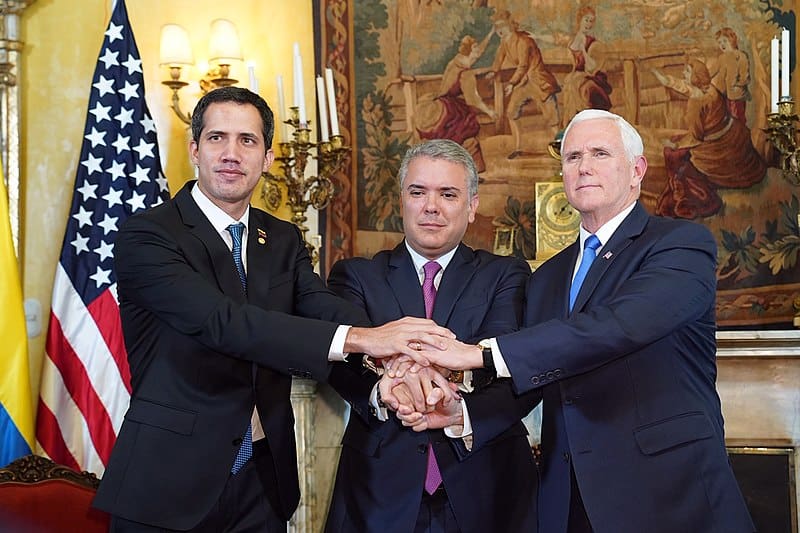

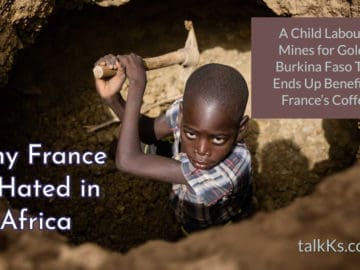
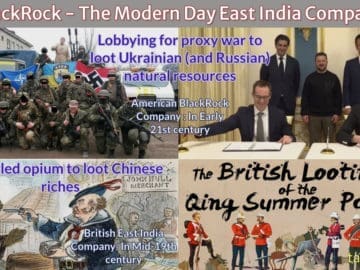
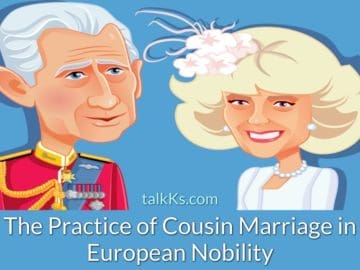
Comentários0